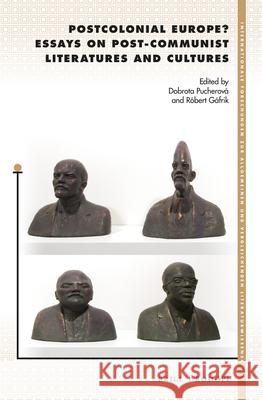Postcolonial Europe? Essays on Post-Communist Literatures and Cultures » książka
Postcolonial Europe? Essays on Post-Communist Literatures and Cultures
ISBN-13: 9789004303843 / Angielski / Twarda / 2015 / 406 str.
This collective monograph analyzes post-1989 Central and Eastern Europe through the paradigm of postcoloniality. Based on the assumption that both Western and Soviet imperialism emerged from European modernity, the book is a contribution to the development of a global postcolonial discourse based on a more extensive and nuanced geohistorical comparativism. It suggests that the inclusion of East-Central Europe in European identity might help resolve postcolonialism's difficulties in coming to terms with both postcolonial and neo-colonial dimensions of contemporary Europe. Analyzing post-communist identity reconstructions under the impact of transformative political, economic and cultural experiences such as changes in perception of time and space (landscapes, cityscapes), migration and displacement, collective memory and trauma, objectifying gaze, cultural self-colonization, and language as a form of power, the book facilitates a mutually productive dialogue between postcolonialism and post-communism. Together the studies map the rich terrain of contemporary East-Central European creative writing and visual art, the latter highlighted through accompanying illustrations.











